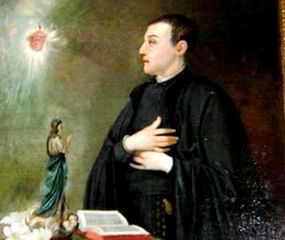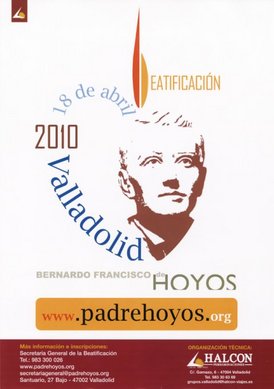Today is the first time the Jesuits and Spain celebrate the liturgical memorial of the new beatus, Blessed Bernard Francis de Hoyos. When Blessed Bernard was lifted to the altars in April, I posted on him, and here. For me, he’s an attractive contemporary apostle of the Sacred Heart Jesus. The second reading for the Office of Readings of the Divine Office follows:
From the Instruction of
Blessed Bernard Francis de Hoyos to Brother Ignatius Osorio
(Vallalodid, 14
September 1732, nn. 40-41; MS 1596, University Library of Salamanca.)
A divine
and heavenly peace in your heart
Try to have, my beloved brother, a divine and
heavenly peace in your heart. I do not speak of peace with others, called by
another name, charity; for that I repeat (the words) of the Apostle to the
Thessalonians: Now concerning love of the brothers, you do not need to have
anyone write to you, for your yourselves have been taught by God to love one
another (1 Thessalonians 4:9). I speak of peace within one’s own heart,
which often is the greater struggle for us, arousing in the soul a thousand
disturbances, anguishes, and disquiet with which the demon succeeds in his aim
of thwarting us in the way of perfection. The distinguishing
characteristic of the friends of God consists in this interior peace, which
Christ so often recommended to his disciples, repeating: Peace be with you (Luke
10:5; 24:36) for he is called “Prince of Peace” (Isaiah 9:6).
Disturbance, on the contrary, is characteristic of reprobates: There is
no peace for the wicked. (Isaiah 48:22). Jesus cannot abide where there
is no peace. The soul is a mirror; it is a crystal-clear steam which
reflects all the beauties placed before it; in which the image of our God is
reflected: into the same image we are being transformed (2 Corinthians 3:18),
so long as the waters of this stream are nit disturbed or agitated, so long as the
clarity of this mirror is not dimmed or obscured.

